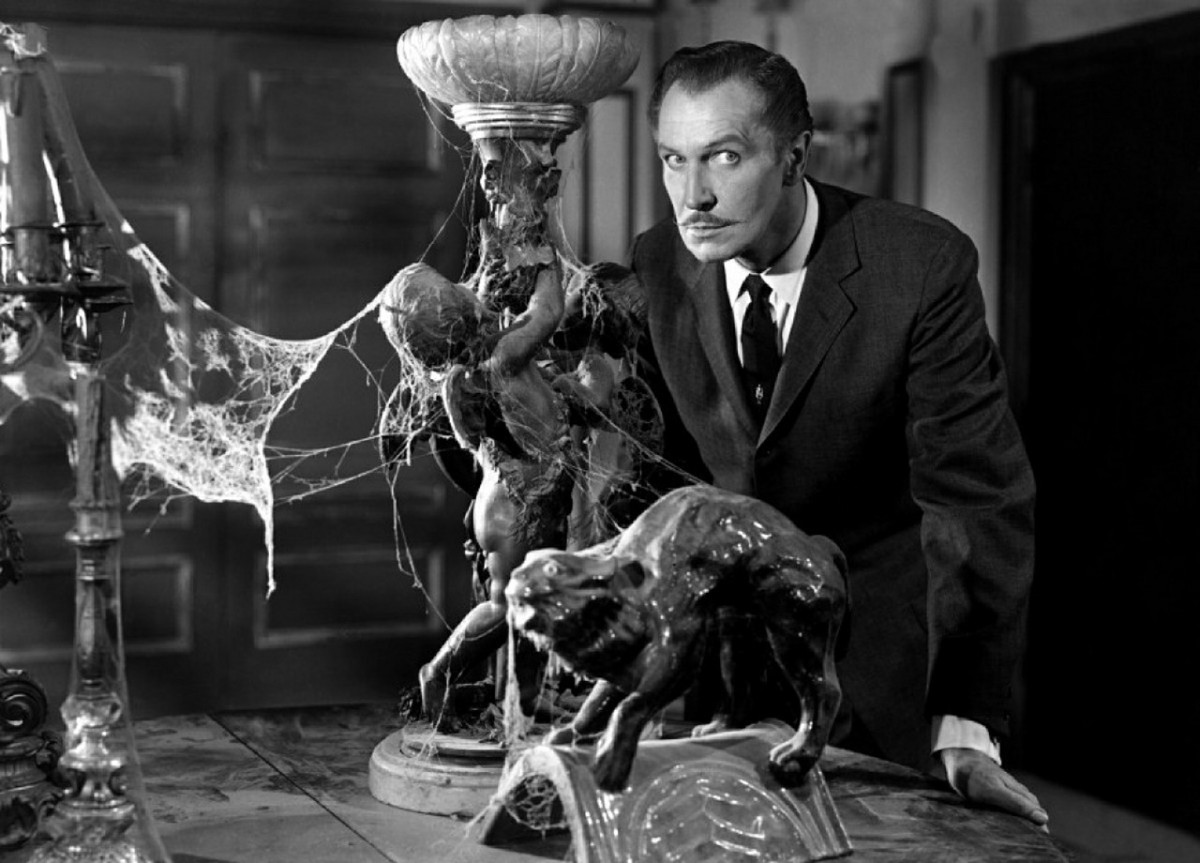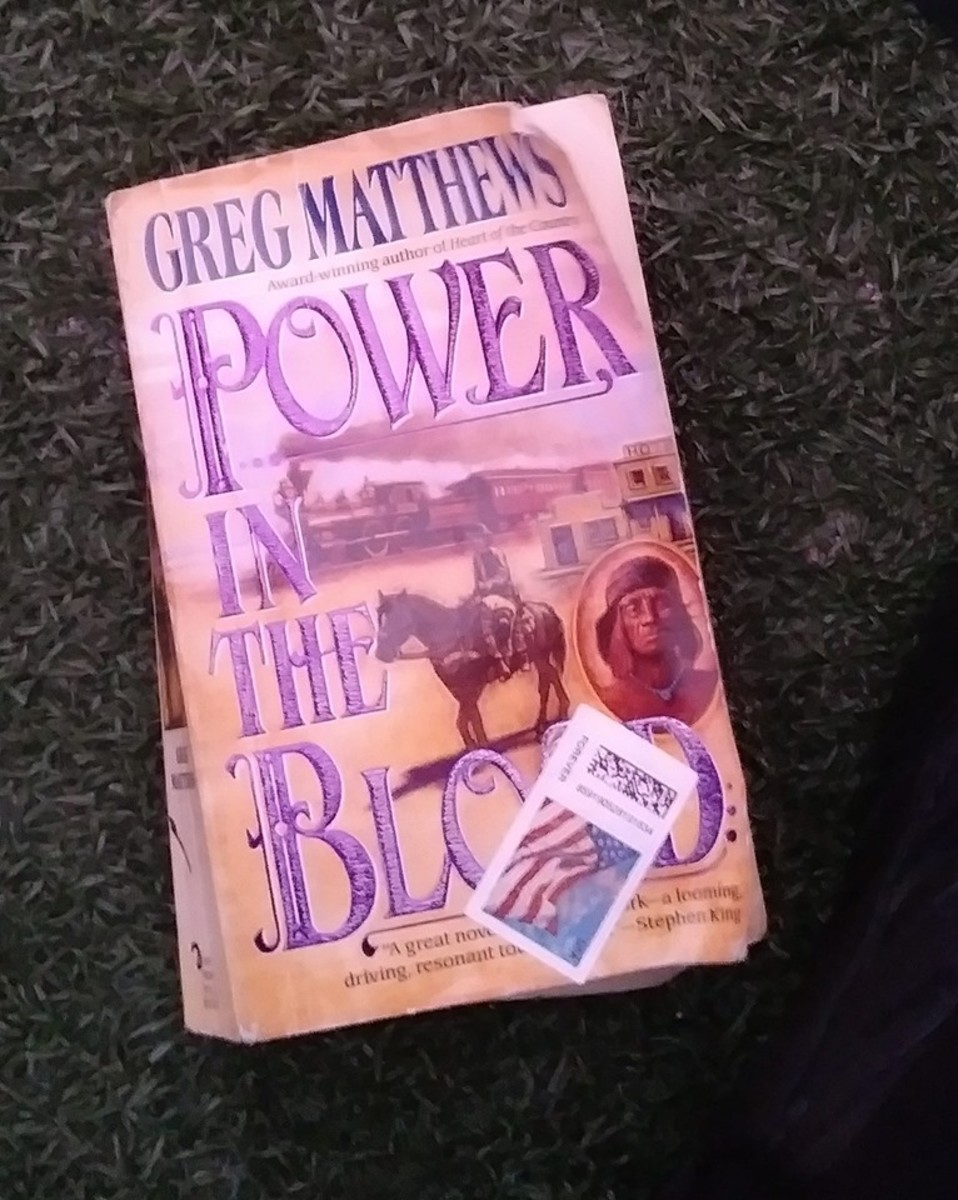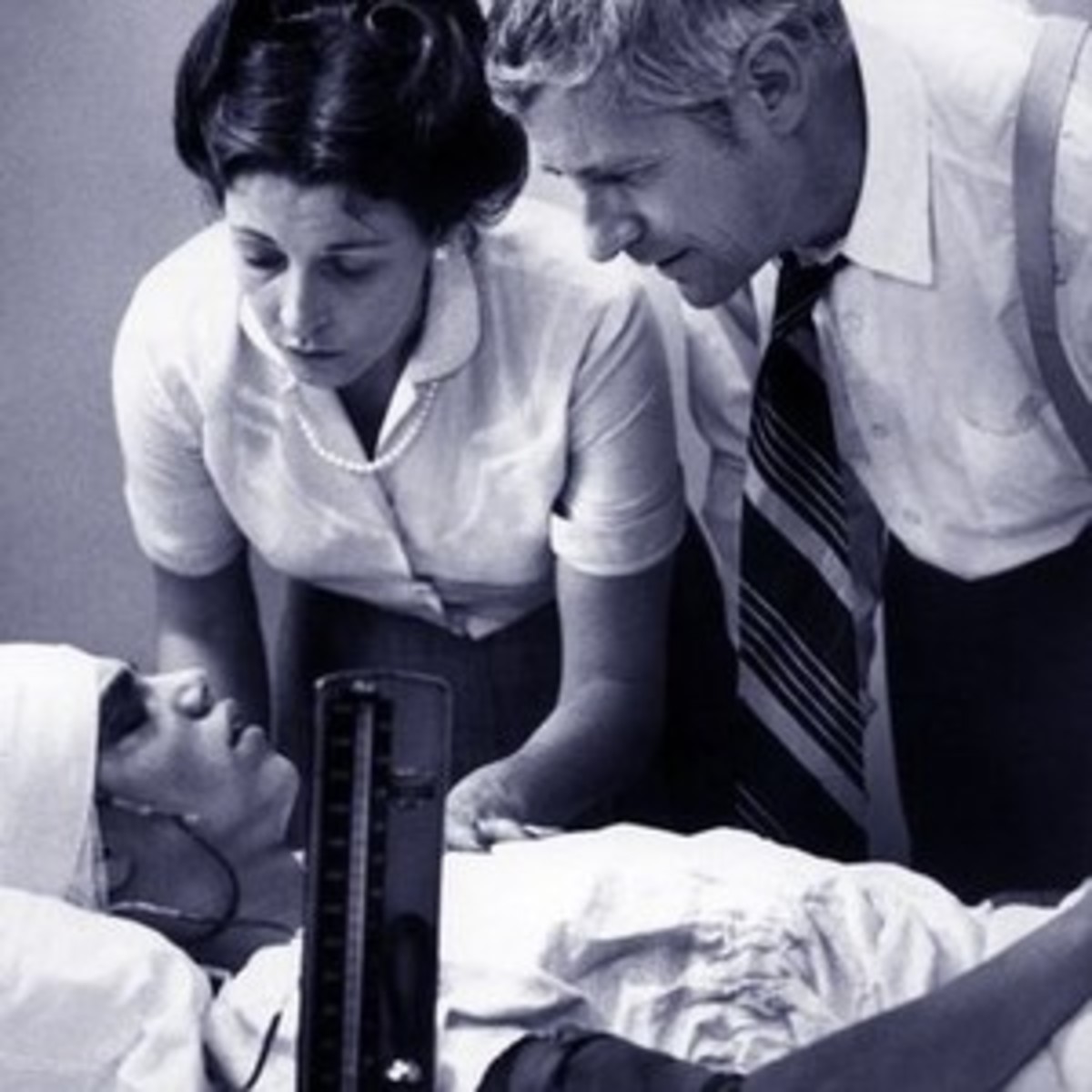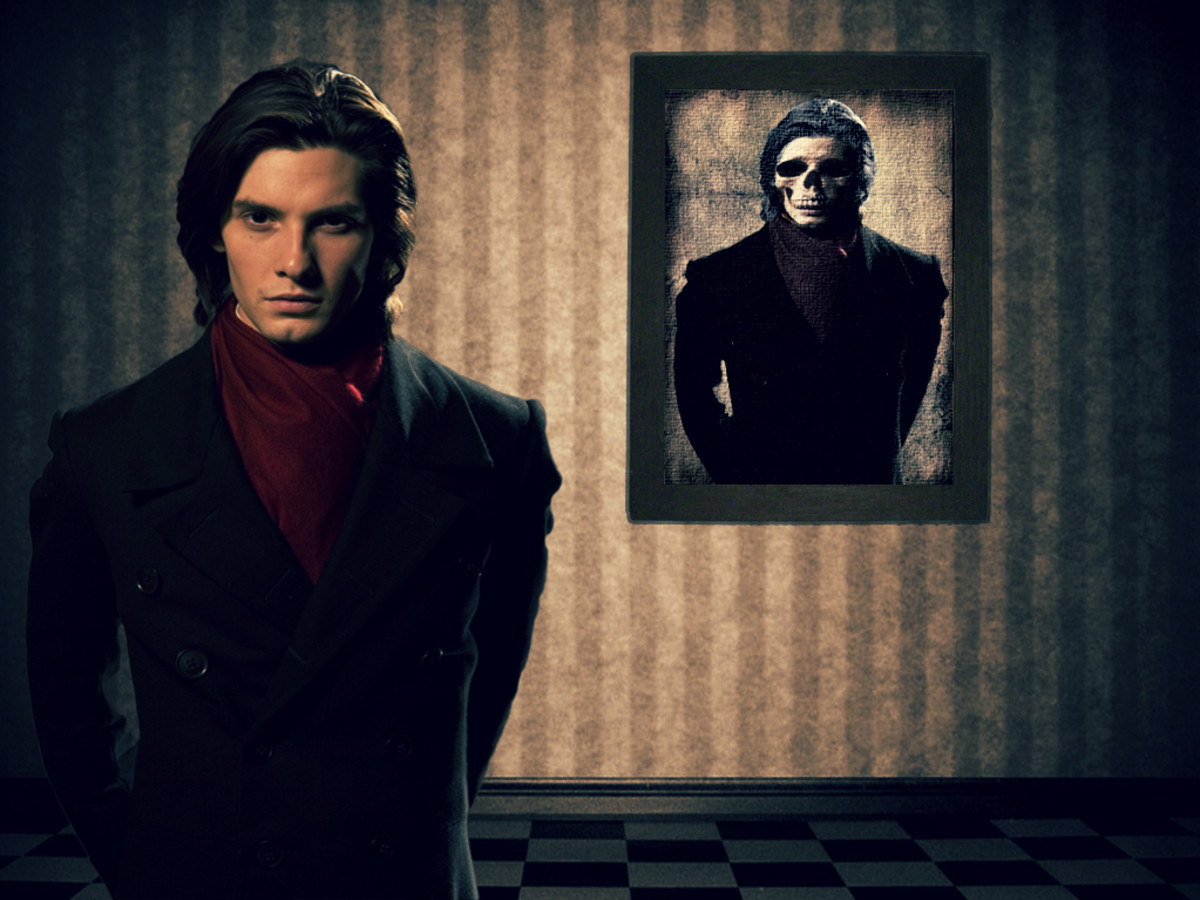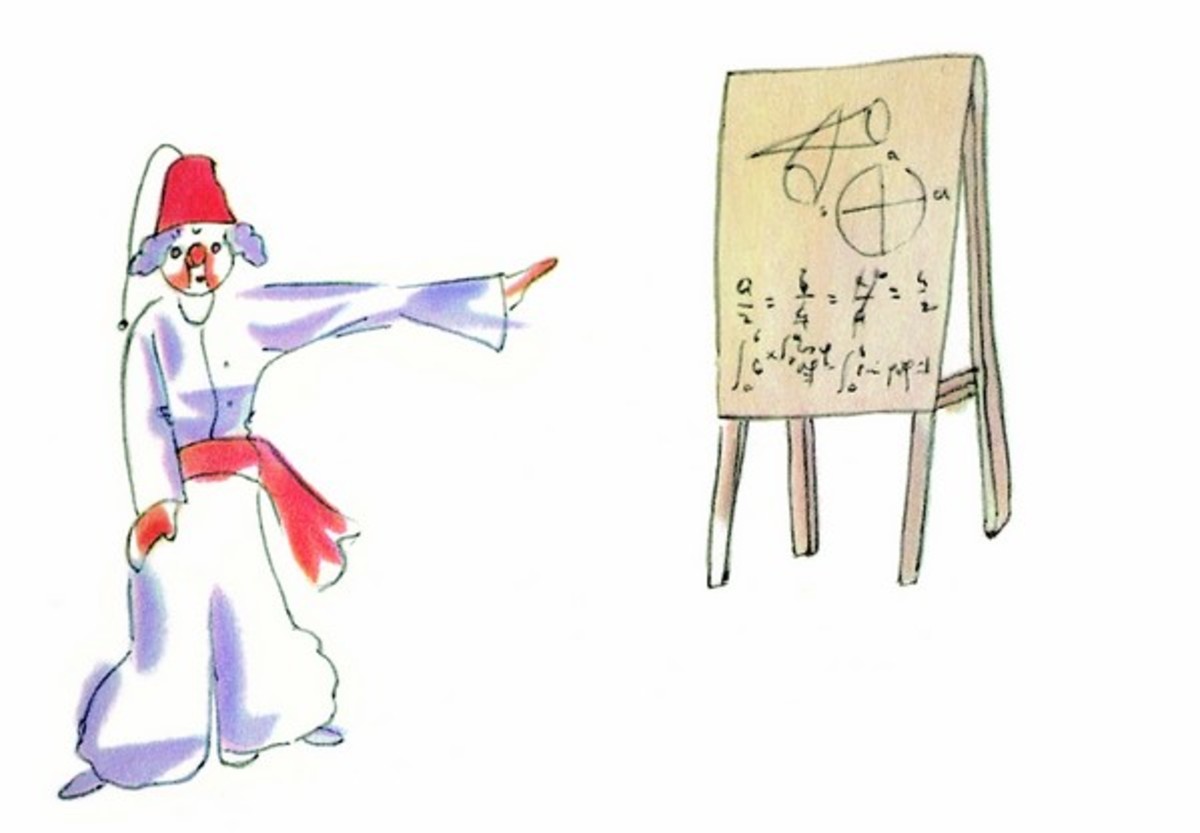- HubPages»
- Books, Literature, and Writing»
- Literature»
- Literary Criticism & Theory
My Top Ten Favorite Novels of 2018

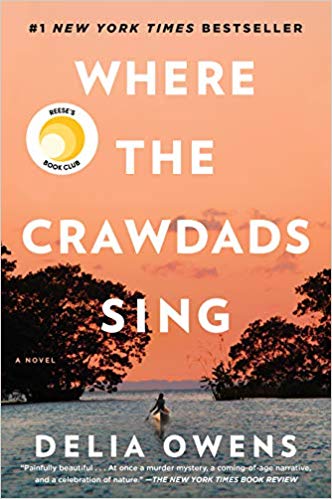
Where the Crawdads Sing by Delia Owens
In every sense of the expression, I don't believe it would be wise to turn my back on Delia Owens. She's a woman who warrants watching, her career, whatever else she might get up to. She doesn't seem like your run-o-the mill, bought-off-the shelf popular writer.
"Crawdads" is an impressive mixture of elements, folktale, gothic, southern, family saga, love story, and murder mystery. She even sneaks in enough history, social commentary, and marshland biology to broaden any reader's knowledge. Epic in scope, the novel spans seven decades from the last half of the 20th century into the new millenium.
It is so well-done, I could not have changed a word. It is the sort of discovery I hope for every time I pick up a new book.
After her mother and eventually all her siblings flea their homestead because of abuse from their drunken father, pre-teen Catherine Danielle Clark is determined to be there when her mother returns. She tries to take care of her father until one day even he doesn't return. Kya, as she has always been known, learns from the owner of the boat gas station and his wife how to trade with the town and everything else about survival she learns from the marsh. She becomes "The Marsh Girl" to the townsfolk. The marsh will provide her with life and a livelihood for the rest of her time.
The town of Barkley Cove will offer her two chances at love, one true, one false, and ultimately, more danger than the wild marsh ever did.
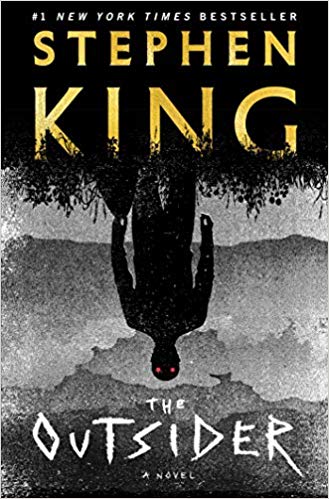
The Outsider by Stephen King
An eleven-year-old boy's violated corpse is found in a town park. Eyewitnesses and fingerprints point unmistakably to one of Flint City, Oklahoma's most popular citizens. He is Terry Maitland, Little League coach, English teacher, husband, and father of two girls. Detective Ralph Anderson, whose son Maitland once coached, orders a quick and very public arrest. Maitland has an alibi, but Anderson and the district attorney soon add DNA evidence to go with the fingerprints and witnesses. Their case seems ironclad.
Intriguing story told in a way that perhaps only King could pull off credibly. I was a little disappointed that the original premise of how a man's DNA and fingerprints could be present at a crime when the man himself had witnesses that he was elsewhere was solved by otherworldly explanation, but King uses it as a jumping off point for an equally gripping plot. The return of Holly Gibney from the Mr. Mercedes series was another brilliant stroke vy King. Holly has seen so much that seemed to be beyond explanation, and despite her difficulties with communicating and social interaction, she is the perfect person to help Ralph and his team to fathom what they may be facing.
"Reality is thin ice, but most people skate on it their whole lives and never fall through until the very end." -- Holly Gibney, The Outsider by Stephen King.
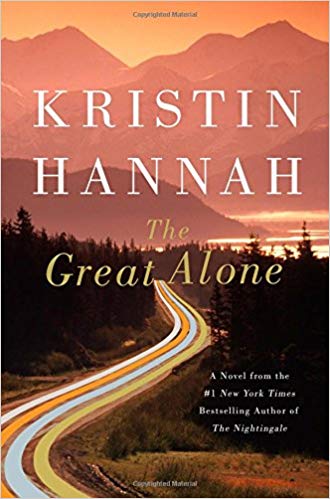
The Great Alone by Kristin Hannah
Given the synopsis, I wouldn't have given this novel a chance of making my top ten, but here it is. There's something about Alaska being the last frontier and being a fertile setting for stories that explore basic elements of humanity. With that in mind, I gave this a shot and found it stayed with me even when I wasn't reading it.
Hannah is a talented writer who has an amazing protagonist in Leni Allbright to tell her story, but it is Hannah's ability to make the reader care even when she pulls no punches and puts legitimate obstacles and dilemmas in the way.
Thirteen-year-old Leni Allbright feels caught in the riptide of her parents’ passionate, stormy relationship. Her mother, Cora, will do anything and go anywhere for the man she loves, even if it means following him into the unknown or even, Alaska. Her father, Ernt, a Vietnam War veteran, is deeded a tract of land which belonged to a fellow POW who didn't make it back home.
At first, Alaska seems to be the answer to their prayers. On the end of a remote peninsula, they find a fiercely independent community of strong men and even stronger women. The long, sunlit days and the generosity of the locals make up for the Allbrights’ lack of preparation and dwindling resources. But as winter approaches and darkness descends on Alaska, Ernt’s mental state, already fueled by survivalist rhetoric, deteriorates and the family begins to suffer. Soon the perils outside pale in comparison to threats from within. The Great Alone is a nickname give to Alaska by Jack London, but the title takes on a far broader metaphor.
Leni finds a friendship with a classmate which blossoms into a deep love which could provide her a future as a self-sufficient adult, but she cannot abandon her mother.
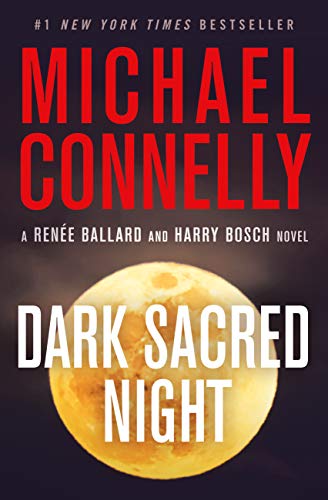
Dark Sacred Night by Michael Connelly
Detective Renee Ballard is working "the late show," LAPD slang for the night shift at Hollywood Station when she finds retired detective Harry Bosch rifling through old file cabinets.
He's working a cold case dealing with the murder of Elizabeth Clayton's daughter. The murder, unsolved, was of fifteen-year-old Daisy Clayton, a runaway on the streets of Hollywood who was brutally killed, her body left in a dumpster like so much trash. Ballard joins forces with Bosch to finally bring her killer to justice. Both Harry and Renee have other cases until Harry is relieved of the last remnants of his official status as a reserve detective with the San Fernando PD.
Connelly's new cop character, Detective Renee Ballard is nearly everything Harry Bosch is not. She's young. She's female, and because she's under more scrutiny, she's careful not to get outside the rules and procedures. Also, because she's had to overcome a lot to become a female detective, She does possess a dogged determination similar to Harry's. They will clash over Harry's headstrong ways, but they gain an earned respect for each other's work. Their unofficial partnership looks destined for a future installment, even though Harry is technically without a valid police badge.
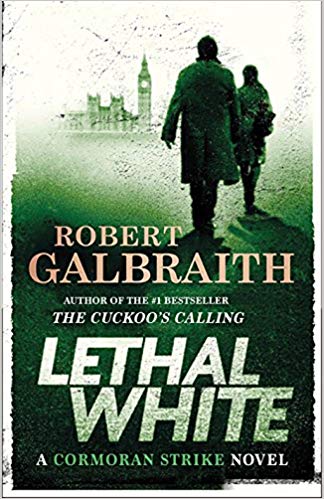
Lethal White by Robert Galbraith
From the title, I thought it was about drugs. Although drugs of a sort do figure in, it is much more about horse breeding at the most delicate levels and the secondary art world. And, once again, I have to confess to NOT being a fan of the Harry Potter books and find it hard to believe that Robert Galbraith is J.K. Rowling, but they tell me it's true. I'm a fan of Mr. Galbraith and Cormoran Strike, no matter how ridiculous the name.
When Billy, a troubled young man, comes to private eye Cormoran Strike's office to ask for his help investigating a crime he witnessed as a child, Strike is left deeply unsettled. Trying to get to the bottom of Billy's story, Strike and Robin Ellacott-once his assistant, now a partner in the agency-set off on a twisting trail that leads them through the backstreets of London, into a secretive inner sanctum within Parliament, and to a beautiful but sinister manor house deep in the countryside. Robin is now invaluable to Strike in the business, but their personal relationship is much, much trickier than that, especially when she becomes the target of whatever conspiracy they have been unable to uncover.
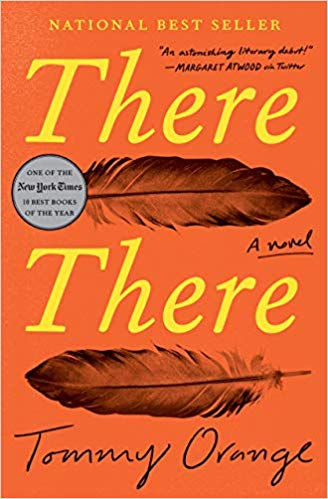
There There by Tommy Orange
I was struck by how this was a modern novel about many aspects of the Native American experience in the contemporary United States. All the characters are self-aware of their situations as they pertain to that current experience. Their story's are defined by the extent to which each of them cares to relate to that.
As we learn the reasons that each person is attending the Big Oakland Powwow-- Jacquie Red Feather is newly sober and trying to make it back to the family she left behind in shame. Dene Oxendene is pulling his life back together after his uncle's death and has come to work at the powwow to honor his uncle's memory. Opal Viola Victoria Bear Shield has come to watch her nephew Orvil, who has taught himself traditional Indian dance through YouTube videos and will perform in public for the very first time. Tony Loneman is a young Native American boy whose future seems destined to be as bleak as his past, and he has come to the Powwow with darker intentions--intentions that will destroy the lives of everyone in his path. There will be glorious communion, and a spectacle of sacred tradition and pageantry. And there will be sacrifice, and heroism, and loss.
The loosely-connected, multiple storylines converge in a climactic episode which will stay with most readers for a very long time.
"We all came to the powwow for different reasons. The messy, dangling threads of our lives got pulled into a braid--tied to the back of everything we'd been doing all along to get us here. There will be death and playing dead, there will be screams and unbearable silences, forever-silences, and a kind of time-travel, at the moment the gunshots start, when we look around and see ourselves as we are, in our regalia, and something in our blood will recoil then boil hot enough to burn through time and place and memory. We'll go back to where we came from, when we were people running from bullets at the end of that old world. The tragedy of it all will be unspeakable, that we've been fighting for decades to be recognized as a present-tense people, modern and relevant, only to die in the grass, wearing feathers."
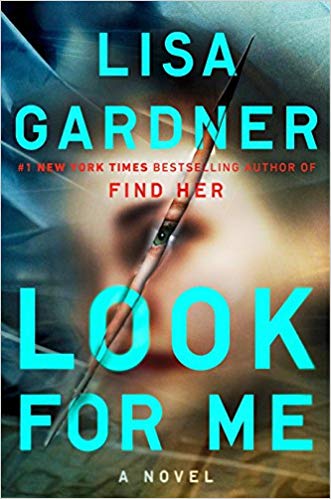
Look for me by Lisa Gardner
This was a perplexing case, both to read and for D.D. Warren and Flora Dane to get to the bottom of. By the end, even Flora Dane with her steely rules of survival was questioning herself, wondering if there might be room for some flexibility in her future.
Lisa Gardner is always worth going along for the ride even if she seems to be venturing off track. This turns out to be fine entry in her new dual Warren-Dane series. I will have no trouble hitching a ride on the next one.
Roxy Baez is sixteen and on the run. Her mother, her mother's boyfriend as well as her sister and brother all lie murdered in the Baez home. The police don't know if Roxy escaped or was the perpetrator of the carnage. Detective D. D. Warren must team up with survivor-turned-avenger, Flora Dane form Garner's previous book, to find the girl to solve the crime.
Foster homes, female gangs, school essays, and unsuspected friends all figure in before D.D. and Flora come to the sadly ironic conclusion.
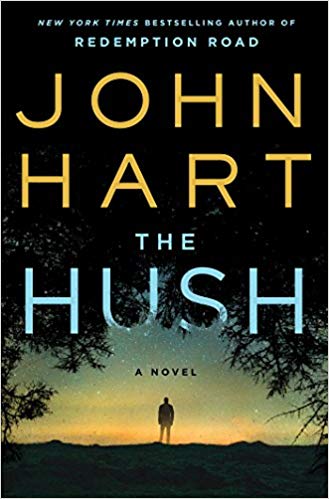
The Hush by John Hart
It's been ten years since the events that changed Johnny Merrimon's life in The Last Child. Hush Harbor known as The Hush has changed Johnny. Living alone on six thousand acres of once-sacred land, Johnny's only connection to normal life is his old friend, Jack. They're not boys anymore, but the bonds remain. But Jack, not as connected to the Hush, feels danger in the wild places Johnny calls home; he senses darkness and hunger, especially as Johnny may be losing title to the land. A lesser friend may have left Johnny to his selfishness.
Many readers commented on the difference in tone of this sequel by Hart. I was disturbed as well, but could not deny the narrative force of the story and the persuasive villainess forces plotting against Johnny, almost as formidable as The Hush itself. Johnny was always a mixed-up kid because of all he'd gone through in The Last Child. Protecting The Hush gave him purpose and saved his life. He may have some slack coming for not being the sweetest human being.
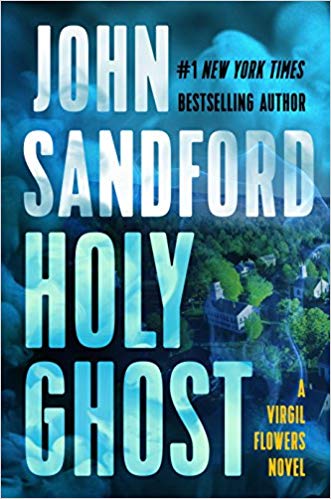
Holy Ghost by John Sandford
Wheatfield, Minnesota -- population seven hundred give or take a murder or two -- since the mayor (campaign slogan: "I'll Do What I Can") and a buddy come up with a scheme to put Pinion on the map. They'd heard of a place where a floating image of the Virgin Mary had turned the whole town into a shrine, attracting thousands of pilgrims. And all those pilgrims needed food, shelter, all kinds of crazy things, right? They'd all get rich, but someone starts shooting people whenever the miracle appears. Virgil Flowers, Minnesota Bureau of Criminal Apprehension is sent to find the killer.
I knew Sandford from his Prey series featuring Lucas Davenport, but overall, I have become more fond of Virgil Flowers. He has a quiet intensity which leaves room for humor, intended and at his expense. The murders are just as serious, but the supporting cast seem more like everyday people who are usually the ones who get mixed up in crimes in real life.
I particularly enjoyed Holy Ghost because it was a prime example of how unintended consequences can result even when no harm was intended. The humanity shows through when innocent people are targeted.
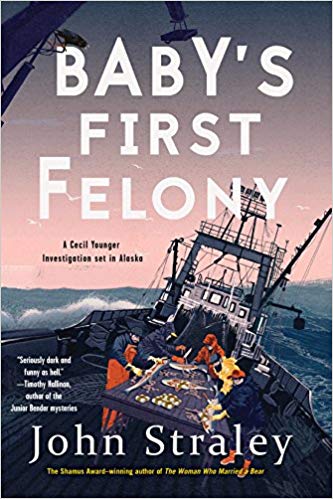
Baby's First Felony by John Straley
The title is confusing because it makes the novel sound like a family crime story, but it's actually a reference to an instructional manual of what NOT to do after you've been arrested. It was written by Cecil Younger's boss, an attorney who represents most of the criminal defendents in Sitka, Alaska. Cecil is his investigator, but in this book soon finds himself in possible need of small tome. In fact, the manual's lessons act as a framing device as Cecil can't seem to follow any of his boss's advice.
Cecil comes into possession of fifty thousand dollars. One of the lessons in Baby's First Felony is "Nothing good comes of walking around with a lot of someone else's money."
“Nothing good” turns out to be a freezer full of drug-stuffed fish, a murder witnessed at close range, and the kidnapping of his teenage daughter, Blossom. Luckily, Cecil has helped a lot of client's and he knows what skills each of them may be able to use to assist him in getting his daughter back and keeping them all alive.
Two top ten novels set in Alaska, even for me, is a lot, but it's a darn good book, and a series I need to check out more.
Special #11:
The Immortalists
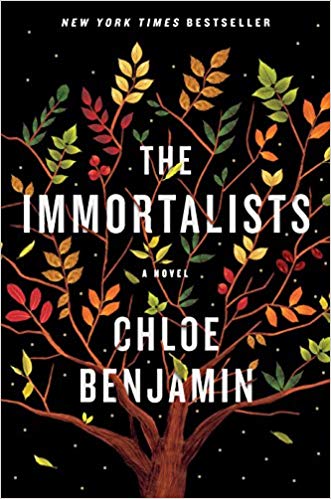
Every year there seems to be a novel I'm not quite sure how to categorize. The Immortalists is this year's entry in the "not quite sure what it is, but I think
It feels like the individual stories of each of the children who went to the mystic to discover their supposed death date, but it is held together as a novel by their sporadic interaction as a family.
There's magic, the stage kind as well as the magic kind, there's science, there's gay pride, and there's an FBI search for the mystic. Every child has an absorbing story well-told. They all reside in a bittersweet place within the Gold family history, really like all family histories, the same, but uniquely so.
I found out recently that apparently Ms. Benjamin resides in my hometown. She attended the University of Wiconsin the same time my sons were there, albeit in vastly different departments.
“It was a really big surprise to me that I fell in love with the Midwest,” says Benjamin, who moved here in 2010 to pursue a master’s degree in fine arts at UW-Madison. The San Francisco native obtained her undergrad degree at Vassar in New York state. She now lives on Williamson Street with her husband and a cat. “I’m always singing [Madison’s] praises to snobby coasties who don’t know how much great stuff there is in other parts of the country.”
It's 1969 in New York City's Lower East Side, and word has spread of the arrival of a mystical woman, a traveling psychic who claims to be able to tell anyone the day they will die. The Gold children—four adolescents on the cusp of self-awareness—sneak out to hear their fortunes. The prophecies inform their next five decades. Golden-boy Simon escapes to the West Coast, searching for love in '80s San Francisco; dreamy Klara becomes a Las Vegas magician, obsessed with blurring reality and fantasy; eldest son Daniel seeks security as an army doctor post-9/11; and bookish Varya throws herself into longevity research, where she tests the boundary between science and immortality.
Honorable Mentions:
The Fallen by David Baldacci
The Smiling Man by Joseph Knox
The Price You Pay by Aidan Truhen
The Thief of All Light by Bernard Schaffer
Noir by Christopher Moore

